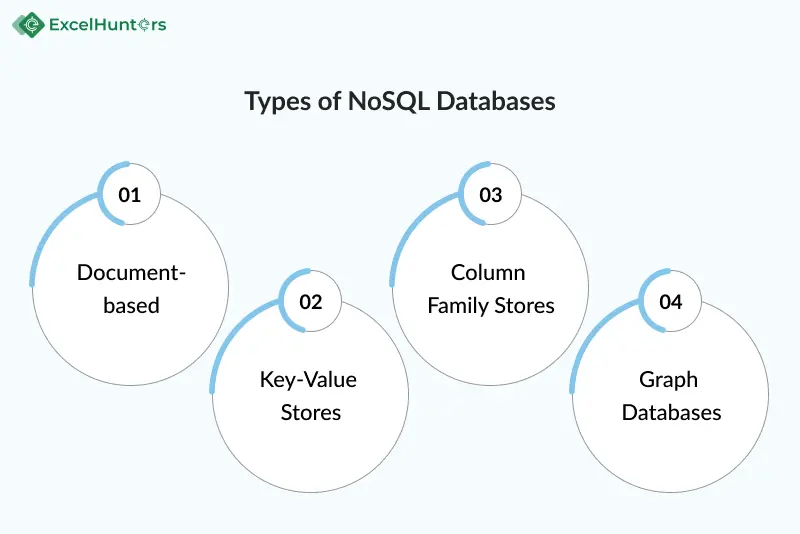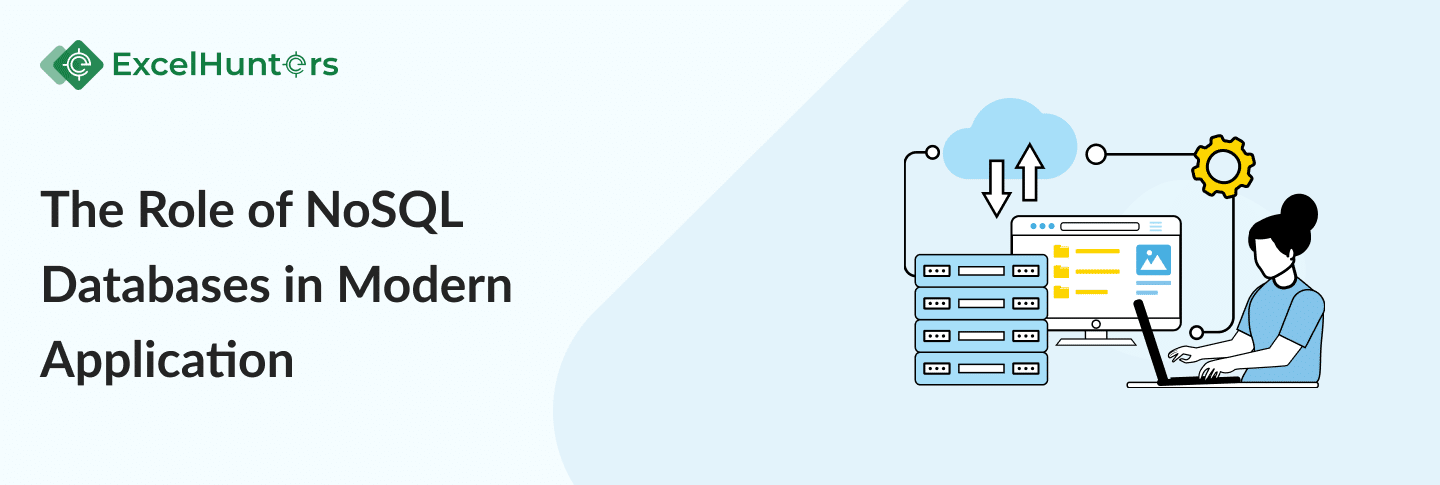The Role of NoSQL Databases in Modern Application Development
Quick Summary
Traditional relational databases, while reliable, often struggle to keep up with the requirements of modern applications. This is where NoSQL databases come into play, offering a versatile alternative that meets the needs of contemporary development practices.
Understanding NoSQL Databases
NoSQL, or “Not Only SQL,” refers to a category of databases that diverge from the tabular relations used in traditional relational databases. Unlike SQL databases, which rely on a predefined schema, NoSQL databases are schema-less or have a flexible schema, allowing for dynamic and unstructured data storage.
Types of NoSQL Databases

There are several types of NoSQL databases, each designed to address specific use cases:
- Document-based: Stores data in flexible, JSON-like documents. Examples include MongoDB and Couchbase.
- Key-Value Stores: Simple key-value pairs for fast retrieval. Popular examples include Redis and DynamoDB.
- Column Family Stores: Optimized for storing and retrieving columns of data rather than rows. Apache Cassandra is a prominent example.
- Graph Databases: Designed to represent and navigate relationships between data points. Neo4j is a leading graph database.
Advantages of NoSQL Databases
Scalability
One of the primary advantages of NoSQL databases is their scalability. Traditional SQL databases often struggle to scale horizontally due to the rigid structure of tables and relationships. NoSQL databases, on the other hand, are inherently designed for horizontal scaling, making them ideal for handling large volumes of data and high traffic loads.
Flexibility
NoSQL databases offer greater flexibility in data modeling compared to their SQL counterparts. With NoSQL, developers can store data in its natural format without the need to define a rigid schema upfront. This flexibility enables faster iteration and adaptation to changing business requirements.
Performance
NoSQL databases are often optimized for specific use cases, resulting in superior performance for certain tasks. For example, document-based NoSQL databases excel at handling nested data structures, while key-value stores are ideal for high-speed data retrieval. By choosing the right type of NoSQL database for the job, developers can achieve significant performance gains.
Use Cases for NoSQL Databases
Big Data Analytics
In the era of big data, organizations require databases capable of efficiently storing and analyzing vast amounts of information. NoSQL databases, with their ability to scale horizontally and handle semi-structured and unstructured data, are well-suited for big data analytics applications. They empower businesses to extract valuable insights from diverse data sources with ease.
Real-time Data Processing
Many modern applications demand real-time data processing capabilities to provide timely insights or enable interactive experiences. NoSQL databases, particularly those optimized for high-speed data retrieval, enable developers to build real-time applications that can handle streaming data and deliver instantaneous responses to user queries.
Content Management Systems (CMS)
Content management systems often deal with diverse data types, including text, images, and multimedia content. NoSQL databases offer the flexibility to store and retrieve these varied data types efficiently, making them an excellent choice for powering CMS platforms. Additionally, NoSQL databases can handle the unpredictable growth of content volumes, ensuring scalability as the CMS evolves.
Challenges and Considerations
While NoSQL databases offer numerous benefits, they also present unique challenges that developers must address:
- Consistency: NoSQL databases typically prioritize availability and partition tolerance over strong consistency, leading to eventual consistency models. Developers must carefully design their applications to handle eventual consistency and resolve conflicts gracefully.
- Learning Curve:Transitioning from traditional SQL databases to NoSQL databases may require developers to acquire new skills and adjust their mindset. Training and education are essential to ensure successful adoption and utilization of NoSQL technologies.
- Tooling and EcosystemThe NoSQL landscape encompasses a wide array of databases, each with its own set of tools and ecosystem. Developers must evaluate the available options carefully and choose the right tooling to support their development workflow effectively.
NoSQL Adoption Trends
Industry Adoption
Across various industries, NoSQL databases have witnessed widespread adoption as organizations seek to harness the power of big data and real-time analytics. From e-commerce platforms handling massive transaction volumes to social media networks managing vast user-generated content, NoSQL databases are instrumental in supporting modern digital ecosystems. As businesses strive to stay competitive in an increasingly data-driven world, the demand for NoSQL expertise continues to rise.
Hybrid Approaches
In some cases, organizations opt for hybrid approaches that combine the strengths of both SQL and NoSQL databases. This approach allows businesses to leverage the familiarity and robustness of SQL databases for structured data while harnessing the scalability and flexibility of NoSQL databases for semi-structured and unstructured data. By integrating these complementary technologies, organizations can achieve a balanced and efficient data management strategy.
Emerging Technologies
The landscape of NoSQL databases continues to evolve with the emergence of new technologies and paradigms. For example, distributed ledger technologies like blockchain are exploring integration with NoSQL databases to enable secure and transparent data storage and sharing. Additionally, advancements in machine learning and artificial intelligence are driving innovations in NoSQL databases, enabling intelligent data processing and predictive analytics capabilities. As these technologies mature, they promise to further enhance the role of NoSQL databases in shaping the future of application development and data management.
Conclusion
NoSQL databases play a crucial role in modern application development, offering unparalleled scalability, flexibility, and performance. By embracing NoSQL technologies, developers can build innovative applications that leverage the power of diverse data types and handle the demands of today’s data-intensive workloads. As the digital landscape continues to evolve, NoSQL databases will remain a cornerstone of agile and resilient software architecture.
For any database application development, don’t hesitate to contact Excelhunters to discuss your specific needs and requirements.
Looking for
Consultations?Our Expertise
- 8 + years of experience
- Adept Developers
- Excel at Agile Development
- Cost-Effective


